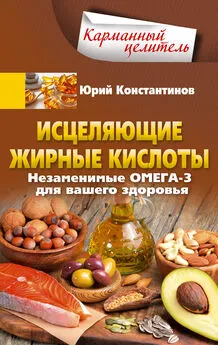Дебора Лаптон - Жирные
- Название:Жирные
- Автор:
- Жанр:
- Издательство:Литагент Высшая школа экономики
- Год:2018
- ISBN:978-5-7598-2236-3
- Рейтинг:
- Избранное:Добавить в избранное
-
Отзывы:
-
Ваша оценка:
Дебора Лаптон - Жирные краткое содержание
Книга, написанная живым, увлекательным языком, предназначена как для широкой аудитории, так и для студентов и исследователей, интересующихся вопросами политики телесности и здоровья.
Жирные - читать онлайн бесплатно ознакомительный отрывок
Интервал:
Закладка:
Burrows L. (2009). Pedagogizing families through obesity discourse // Biopolitics and the ‘Obesity Epidemic’ / J. Wright, V. Harwood (eds). L.: Routledge. P. 127–140.
Butler J. (1990). Gender Trouble: Feminism and the Subversion of Identity. N.Y.: Routledge.
Bynum C. (1987). Holy Feast and Holy Fast: The Religious Significance of Food to Medieval Women. Berkeley: University of California Press.
Cahill A. (2010). Getting to my fighting weight // Hypatia. Vol. 25. No. 2. P. 485–492.
Cain P., Donaghue N., Ditchburn G. (2017). Concerns, culprits, counsel, and conflict: a thematic analysis of “obesity” and fat discourse in digital news media // Fat Studies. Vol. 6. No. 2. P. 170–188.
Cameron E., Russell C. (2016). The Fat Pedagogy Reader: Challenging Weight-Based Oppression through Critical Education. N.Y.: Peter Lang.
Campos P. (2004). The Obesity Myth: Why America’s Obsession with Weight is Hazardous to Your Health. N.Y.: Gotham Books.
Campos P. (2011). Does fat kill? A critique of the epidemiological evidence // Debating Obesity: Critical Perspectives / E. Rich, L. Monaghan, L. Aphramor (eds). L.: Palgrave Macmillan. P. 36–59.
Campos P., Saguy A., Ernsberger P., Oliver E., Gaesser G. (2006). The epidemiology of overweight and obesity: public health crisis or moral panic // International Journal of Epidemiology. Vol. 35. No. 1. P. 55–60.
Carden-Coyne A., Forth C. (2005). The belly and beyond: body, self, and culture in ancient and modern times // Cultures of the Abdomen: Diet, Digestion, and Fat in the Modern World / C. Forth, A. Carden-Coyne (eds). N.Y.: Palgrave Macmillan. P. 1–11.
Carter E., Watney S. (1989). Taking Liberties: AIDS and Cultural Politics. L.: Serpent’s Tail.
Chan N. K.-C., Gillick A. (2009). Fatness as a disability: questions of personal and group identity // Disability & Society. Vol. 24. No. 2. P. 231–243.
Chernin K. (1981). Womansize: The Tyranny of Slenderness. L.: The Women’s Press.
Christie M., Verran H. (2014). The Touch Pad body: a generative transcultural digital device interrupting received ideas and practices in Aboriginal health // Societies. Vol. 4. No. 2. P. 256–264. (accessed 30 March 2015).
Clarke A.E., Shim J. (2011). Medicalization and biomedicalization revisited: technoscience and transformations of health, illness and American medicine // Handbook of the Sociology of Health, Illness, and Healing: A Blueprint for the 21st Century / A.B. Pescosolido, K.J. Martin, D.J. McLeod, A. Rogers (eds). N.Y.: Springer New York. P. 173–199.
Cobb G. (2017). “This is not pro-ana”: Denial and disguise in pro-anorexia online spaces // Fat Studies. Vol. 6. No. 2. P. 189–205.
Colls R., Evans B. (2009). Introduction: questioning obesity politics // Antipode. Vol. 41. No. 5. P. 1011–1020.
Colls R., Evans B. (2014). Making space for fat bodies? A critical account of “the obesogenic environment” // Progress in Human Geography. Vol. 38. No. 6. P. 733–753.
Conrad P. (1992). Medicalization and social control // Annual Review of Sociology. Vol. 18. P. 209–232.
Contois E.J.H. (2015). Guilt-free and sinfully delicious: a contemporary theology of weight loss dieting // Fat Studies. Vol. 4. No. 2. P. 112–126.
Cooper C. (1997). Can a fat woman call herself disabled? // Disability & Society. Vol. 12. No. 1. P. 31–42.
Cooper C. (2007). Headless fatties. (accessed 15 January 2012).
Cooper C. (2009). Maybe it should be called Fat American Studies // The Fat Studies Reader / E. Rothblum, S. Solovay (eds). N.Y.: New York University Press. P. 327–333.
Cooper C. (2010). Fat Studies: mapping the field // Sociology Compass. Vol. 4. No. 12. P. 1020–1034.
Couch D., Han G.-S., Robinson P., Komesaroff P. (2017). Men’s weight loss stories: how personal confession, responsibility and transformation work as social control // Health, online ahead of print. .
Crawford K., Lingel J., Karppi T. (2015). Our metrics, ourselves: A hundred years of self-tracking from the weight scale to the wrist wearable device // European Journal of Cultural Studies. Vol. 18. No. 4–5. P. 479–496.
Crawford K., Schultz J . (2014). ‘Big data and due process: toward a framework to redress predictive privacy harms’. Boston College Law Review. No. 55 (1). P. 93–128.
Crawford R. (1980). Healthism and the medicalization of everyday life // International Journal of Health Care Services. Vol. 10. No. 3. P. 365–388.
Crawford R. (1994). The boundaries of the self and the unhealthy other: Reflections on health, culture and AIDS // Social Science & Medicine. Vol. 38. No. 10. P. 1347–1365.
Crawshaw P. (2012). Governing at a distance: social marketing and the (bio)politics of Responsibility // Social Science & Medicine. Vol. 74. No. 1. P. 200–207.
Dame-Griff E.C. (2016). “He’s not heavy, he’s an anchor baby”: fat children, failed futures, and the threat of Latina/o excess // Fat Studies. Vol. 5. No. 2. P. 156–171.
Darroch F.E., Giles A.R. (2016). A postcolonial feminist discourse analysis of urban Aboriginal women’s description of pregnancy-related weight gain and physical activity // Women and Birth. Vol. 29. No. 1. P. e23–e32.
De Choudhury M. (2015). Anorexia on Tumblr: a characterization study // Proceedings of the 5th International Conference on Digital Health 2015 (DH ’15). Florence: ACM Press. P. 43–50.
de Melo-Martín I., Salles A. (2011). On Disgust and Human Dignity // The Journal of Value Inquiry. Vol. 45. No. 2. P. 159–168.
Deigh J. (2006). The politics of disgust and shame // The Journal of Ethics. Vol. 10. No. 4. P. 383–418.
Deleuze G., Guattari F. (1985). Anti-Oedipus. L.: Athlone Press. [Рус. изд.: Делез Ж., Гваттари Ф. (2007). Анти-Эдип: Капитализм и шизофрения. Екатеринбург: У-Фактория.]
Deleuze G., Guattari F. (1988). A Thousand Plateaus. L.: Athlone Press. [Рус. изд.: Делез Ж., Гваттари Ф. (2010). Тысяча плато: Капитализм и шизофрения. Екатеринбург, М.: У-Фактория, Астрель.]
Department of Health (2011). Healthy Lives, Healthy People: A Call to Action on Obesity in England. L.: Department of Health.
Dickins M., Thomas S.L., King B., Lewis S., Holland K. (2011). The role of the fatosphere in fat adults’ responses to obesity stigma: a model of empowerment without a focus on weight loss // Qualitative Health Research. Vol. 21. No. 12. P. 1679–1691.
Douglas M. (1969). Purity and Danger: An Analysis of Concepts of Pollution and Taboo. L.: Routledge & Kegan Paul. [Рус. изд.: Дуглас М. (2000). Чистота и опасность: анализ представлений об осквернении и табу. М.: Канон-Пресс-Ц, Кучково поле.]
Durham D. (2011). Disgust and the anthropological imagination // Ethnos. Vol. 76. No. 2. P. 131–156.
Ernsberger P. (2009). Does social class explain the connection between weight and health? // The Fat Studies Reader / E. Rothblum, S. Solovay (eds). N.Y.: New York University Press. P. 25–36.
Evans B., Colls R. (2009). Measuring fatness, governing bodies: the spatialities of the Body Mass Index (BMI) in anti-obesity politics // Antipode. Vol. 41. No. 5. P. 1051–1083.
Evans B., Colls R., Horschelmann K. (2011). “Change4Life for your kids”: embodied collectives and public health pedagogy // Sport, Education and Society. Vol. 16. No. 3. P. 323–341.
Evans, J. Rich R., Davies B., Allwood R. (2008). Education, Disordered Eating and Obesity Discourse: Fat Fabrications. L.: Routledge.
Faccio E., Nardin A., Cipolletta S. (2016). Becoming ex-obese: narrations about identity changes before and after the experience of the bariatric surgery // Journal of Clinical Nursing. Vol. 25. No. 11–12. P. 1713–1720.
Farhangi M.A., Emam-Alizadeh M., Hamedi F., Jahangiry L. (2017). Weight selfstigma and its association with quality of life and psychological distress among overweight and obese women // Eating and Weight Disorders: Studies on Anorexia, Bulimia and Obesity. Vol. 22. No. 3. P. 451–456.
Farrell A. (2009). “The white man’s burden”: female sexuality, tourist postcards, and the place of the fat woman in early 20th-century U.S. culture // The Fat Studies Reader / E. Rothblum, S. Solovay (eds). N.Y.: New York University Press. P. 256–262.
Farrell L.C., Warin M.J., Moore V.M., Street J.M. (2016). Emotion in obesity discourse: understanding public attitudes towards regulations for obesity prevention // Sociologyof Health & Illness. Vol. 38. No. 4. P. 543–558.
Featherstone M. (2010). Body, image and affect in consumer culture // Body & Society. Vol. 16. No. 1. P. 193–221.
Ferreday D. (2003). Unspeakable bodies: erasure, embodiment and the pro-ana community // International Journal of Cultural Studies. Vol. 6. No. 3. P. 277–295.
Fitbit (2017). (accessed 21 September 2017).
Flegal K.M., Kit B.K., Orpana H., Graubard B.I. (2013). Association of all-cause mortality with overweight and obesity using standard body mass index categories: a systematic review and meta-analysis // Journal of the American Medical Association. Vol. 309. No. 1. P. 71–82.
Forth C. (2012). Melting moments: the greasy sources of modern perceptions of fat // Cultural History. Vol. 1. No. 1. P. 83–107.
Forth C.E. (2013). The qualities of fat: bodies, history, and materiality // Journal of Material Culture. Vol. 18. No. 2. P. 135–154.
Fotopoulou A., O’Riordan K. (2017). Training to self-care: fitness tracking, biopedagogy and the healthy consumer // Health Sociology Review. Vol. 26. No. 1. P. 54–68.
Foucault M. (1973). The Birth of the Clinic: An Archaeology of Medical Perception. L.: Tavistock. [Рус. изд.: Фуко М . (1998). Рождение клиники. М.: Смысл.]
Foucault M. (1988). Technologies of the self // Technologies of the Self: A Seminar with Michel Foucault / L. Martin, H. Gutman, P. Hutton (eds). L.: Tavistock. P. 145–162. [Рус. изд.: Фуко М. (2008). Технологии себя // Логос. № 2 (65). С. 96–122.]
Foucault M. (1991). Governmentality // The Foucault Effect: Studies in Governmentality / G. Burchell, C. Gordon, P. Miller (eds). Hemel Hempstead: Harvester Wheatsheaf. P. 87–104. [Рус. изд.: Фуко М. (2003). Правительственность (идея государственного интереса и ее генезис) // Логос. № 4/5. С. 4–22.]
Fox N.J., Alldred P. (2017). Sociology and the New Materialism: Theory, Research, Action. L.: Sage.
Fox N.J., Bissell P., Peacock M., Blackburn J. (2018). The micropolitics of obesity: materialism, markets and food sovereignty // Sociology. Vol. 52. No. 1. P. 111–127.
Friedman M. (2015). Mother blame, fat shame, and moral panic: “obesity” and child welfare // Fat Studies. Vol. 4. No. 1. P. 14–27.
Fullagar S. (2009). Governing healthy family lifestyles through discourses of risk and Responsibility // Biopolitics and the ‘Obesity Epidemic’ / J. Wright, V. Harwood (eds). L.: Routledge. P. 108–126.
Читать дальшеИнтервал:
Закладка:










